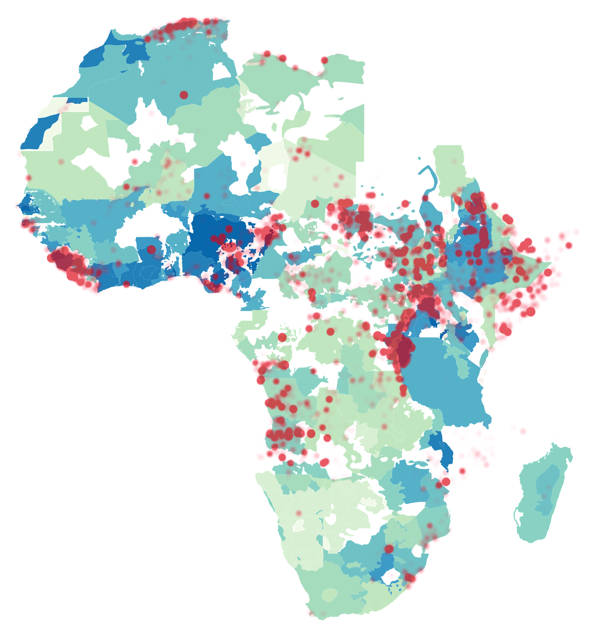To date, the research community has failed to reach a consensus on the nature and significance of the relationship between climate variability and armed conflict. We argue that progress has been hampered by insufficient attention paid to the context in which droughts and other climatic extremes may increase the risk of violent mobilization. Addressing this shortcoming, this study presents the first actor-oriented analysis of the drought-conflict relationship, focusing specifically on politically relevant ethnic groups and their sensitivity to growing-season drought under various political and socioeconomic contexts. To this end, we draw on new conflict event data that cover Asia and Africa, 1989–2014, updated spatial ethnic settlement data, and remote sensing data on agricultural land use. Our novel procedure allows quantifying, for each ethnic group, drought conditions during the growing season of the locally dominant crop. A comprehensive set of multilevel mixed-effects models that account for the groups’ livelihood, economic, and political vulnerability reveal that a drought under most conditions has little effect on the short-term risk that a group challenges the state by military means. However, for agriculturally dependent groups as well as politically excluded groups in very poor countries, a local drought is found to increase the likelihood of sustained violence. We interpret this as evidence of the reciprocal relationship between drought and conflict, whereby each phenomenon makes a group more vulnerable to the other.
von Uexkull, Nina; Mihai Croicu; Hanne Fjelde & Halvard Buhaug (2016) Civil conflict sensitivity to growing season drought, Proceedings of the National Academy of Sciences of the United States of America 113 (44): 12391–12396.











